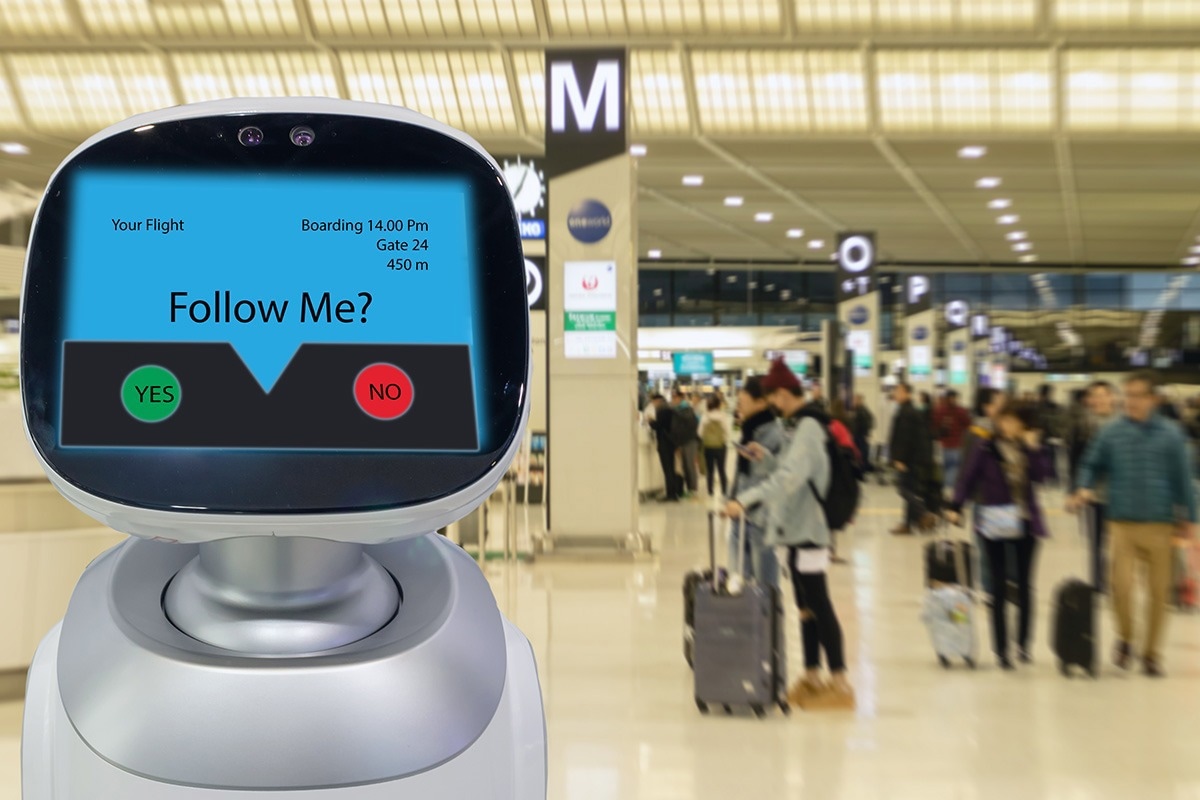People are not accepting robots, even when they are getting more prevalent in workplaces.
 Service robots are a type of technology that’s expected to be coming soon to industries, including hospitality. Image Credit: Adobe Stock
Service robots are a type of technology that’s expected to be coming soon to industries, including hospitality. Image Credit: Adobe Stock
According to new research by scientists from the University of Central Florida, employees in countries with more income and social discrimination were more likely to see artificial intelligence and robots as threats to jobs.
This implies that robots in countries such as Denmark, Sweden, Finland, and the Netherlands are more welcoming than in countries like Greece or Spain, where more income inequality is present.
The research analyzed European countries, and this study was recently published in the Technology, Mind and Behavior journal.
Although the study focused on European countries, Mindy Shoss, the study co-author and professor in UCF’s Department of Psychology, states that the results can also aid in better understanding the American issue.
The US always ranks pretty high on inequality and societal inequality. Given that, I would suspect that there probably are, on average, similar negative views of AI and robot technology in the US
Mindy Shoss, Study Co-Author and Professor, Department of Psychology, University of Central Florida
Shoss states that in highly unequal societies, there are higher health, income, and education inequalities. These societies also give more attention to people’s position on the social ladder. As a result, it leads to uncertainty and anxiety about status, income, and job security.
“Countries that have more people in unequal standing, on average, tend to see these technologies more as a threat,” she states.
The research utilized data from the usually done Eurobarometer public opinion survey to analyze whether there was a connection between employees perceiving robots and AI as country inequality and threat. Their study comprised over 13,000 respondents from 28 European Union member states. In March 2017, their data were collected.
The researchers discovered a positive connection between income inequality—as operationalized by the Gini index, an economic measure—and opinions that AI and robots cause general job loss threats.
Shoss, studying organizational psychology, got intrigued by the study through her work with the hospitality industry and the technology that is making an entry into that sector—for example, service robots.
“We’re at this point in society where there are companies making AI and robotics and marketing them for the workforce,” Shoss adds.
There’s a lot of potential of these technologies to help make work better by doing dangerous tasks or giving people more flexibility, but there’s also some risk involved in these technologies. And the implication from our research is that if you’re going to try to develop robots or AI technology in a highly unequal society, there might be more barriers to getting people to adopt that kind of technology.
Mindy Shoss, Study Co-Author and Professor, Department of Psychology, University of Central Florida
Shoss states that depending on these results, inequalities must be considered while designing and implementing technology, alongside addressing methods with which advanced technology can improve jobs or incomes of the worker, to maximize acceptance.
The study’s co-author was Katherine Ciarlante, a doctoral student in industrial and organizational psychology and has her master’s in the same subject at UCF.
The study was supported by the National Institute Occupational Safety and Health under the Centers for Disease Control and Prevention.
Journal Reference:
Shoss, M. K., et al. (2022) Are Robots/AI Viewed as More of a Workforce Threat in Unequal Societies? Evidence From the Eurobarometer Survey. Technology, Mind and Behavior. doi.org/10.1037/tmb0000078.